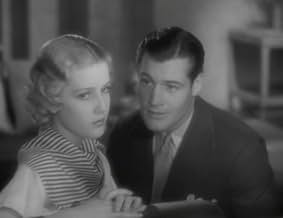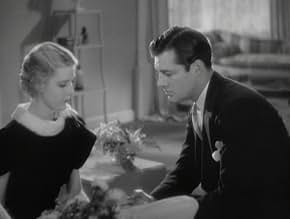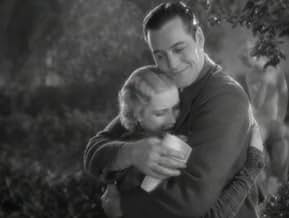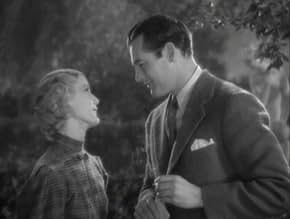Adicionar um enredo no seu idiomaAn American heiress marries a lord, and shocks London society.An American heiress marries a lord, and shocks London society.An American heiress marries a lord, and shocks London society.
- Direção
- Roteiristas
- Artistas
- Prêmios
- 1 vitória no total
Violet Kemble Cooper
- Duchess
- (as Violet Kemble-Cooper)
Virginia Howell
- Mrs. Saunders
- (cenas deletadas)
Walter Walker
- Mr. Saunders
- (cenas deletadas)
Finis Barton
- Diana - George's Mistress
- (não creditado)
Bunny Beatty
- Lady Helen
- (não creditado)
May Beatty
- Duchess of Hightower
- (não creditado)
Tyrell Davis
- Ernest
- (não creditado)
Bradley Metcalfe
- Little Boy
- (não creditado)
- Direção
- Roteiristas
- Elenco e equipe completos
- Produção, bilheteria e muito mais no IMDbPro
Avaliações em destaque
This is a delightfully bitter and witty play by Maugham, adapted to film almost exactly as it appeared on stage. Kemble as Minnie steals the show. And the last scene, between Minnie and the dance instructor, is simply hilarious. Charles Starrett, later a Western star in "B" movies, is wooden, and poor Gilbert Roland doesn't have a lot to work with in the script. But the others sparkle and shine, telling us what sophisticated light comedy can be at its best. What a shame this has not appeared on VHS.
This movie haunts me in a way and fills me with questions. Why did Selznick make this screen version of a 1917 Maugham play right in the middle of the Great Depression in America? I wonder what was on his mind -- to make people angry enough to bring their friends for another look? To let them scoff at the foibles of the impossibly idle rich? This movie primarily is about American expats who've found a place among a jaded British aristocracy (which, at the time of Maugham's stage play, were, with the rest of England, at the height of a bloody world war that would cost Britain almost an entire generation of its young men). But this film version was brought to the screen in 1933, at the height of a crushing Depression that left so many millions jobless and homeless and lucky to have the price of a night at the movies. Contrast that with the sly comic turnings of a very young Gilbert Roland as the Chilean idler Pepi, whose pouty side-glances as he manipulates his very rich and titled benefactress were elegantly applied and flawlessly aimed, no doubt, at enraging most any Depression-oppressed American of the day. I'm sure Roland (no idler himself) and Cukor had a lot of fun filming Pepi. I loved the steady Grant Mitchell, elegantly playing a happy snob who unashamedly admits that he'd come to England from Ohio, and has "lost any trace of an American accent." No apologies from his character, who lends the picture a decorum and good-humored tolerance, all in the cause of maintaining these high-blown dodgy "friendships," deftly working to keep things on a happy note, despite bothersome indiscretions. Others have written here of the remarkable performance of Violet Kemble Cooper as the Duchess, and I heartily agree. And what a happy surprise was the very late entrance in the picture of Tyrell Davis (one of the famous tailors from Wellman's "The Public Enemy" two years earlier) as the unabashedly delightful pouffe Ernest, brought in by Bennett's character to salvage a nearly wrecked country weekend. Ernest was summoned hastily from a busy Sunday schedule in London, still attired in his city-best, flawlessly coiffed, with dark heart-shaped lip rouge, more eye shadow than Bennett, and powdered like a pastry. He carried his look as proudly, happily and effortlessly as did the elegant Bennett in her timelessly smashing Hattie Carnegie gowns. Across the Channel, he'd have been exterminated by the Nazis, but in his place among a protective British aristocracy, Ernest was obviously a most happy man, allowed to act out himself completely and taking his place as a favorite among the ladies. I'm astonished that Davis, whose Ernest hilariously capped the picture and who uttered its naughty closing line, was not credited for this fresh and pleasing (or shocking) performance. Have you ever seen such a face in the movies? Or anywhere else? Such a happy individualist in a society that outlawed some of his assumed after-hours behavior. Without the protection of the aristocracy, Ernest, like Wilde, likely would have spent part of his life in prison. This picture contains some dated stage business and moves a bit too slowly for us today, but I'm so happy that it survives. I still wonder, though, what was the aim of making this movie at this time in the American experience? Hughes and Selznick wanted and expected an audience and a profit, after all. Was a Maugham play burning a hole in their pockets? Were generous eyes-full of Constance Bennett in clingy satin gowns enough to draw 'em in? I suspect there was a social aim here, but I'm not sure what it is.
Our Betters (1933) Constance Bennett, Violet Kemble Cooper, Anita Louise, Alan Mowbray, Gilbert Rowland. A Somerset Maugham play, directed by George Cukor about the Lords and Ladies of British society, is amusing and biting at the same time. They have parties and weekends at someones estate, and gossip about who is sleeping with who, and learn all the latest dance steps. Lady Greystone has been 'educated' in her betters ways by her titled husband who she learned too late married her only for her money. While he spends all his time with his mistress, she gives lavish parties for her "betters." Soon she is the top hostess among the titled and idle set. Some wicked humor by Maugham, who was an invited guest to many of the same sort of places among the same sort of people. Bennett is dazzling in her wardrobe by Hattie Carnegie and Cooper is too funny trying to keep her gigolo from straying. And the final scene with a rouged and mincing dance instructor is very funny. As in any hard times, the depression era movie goer wanted something light and amusing and not deep and real. They saw 'real' everyday in their homes and on the streets. Kind of like today. 8/10
American hardware heiress Constance Bennett marries English lord Alan Mowbray. Then she overhears him remarking to his mistress he only married her for her money. She's heartbroken, but becomes a pillar of British society. When her sister, Anita Louise, comes to visit, Miss Bennett engineers a breakup with Miss Louise's American fiance, and an engagement to a British nobleman.
This definitely pre-code movie is based on a W. Somerset Maugham play, with lots of snide business and the sort of arch comments that passed for wit in a post-Oscar Wilde theater. Director George Cukor has mediocre success in convincing his cast that this is no longer being performed on the boards. The result is that the Americans are rather quiet, while the British are over the top... which may have been a deliberate choice, given that at this time, British movies seemed to have a lot of appearances by Finlay Currie as an American (invariably named 'Hiram' or some such), flattening his vowels with a sledge hammer and being obnoxious about money. Minor Watson is outstanding as an admirer of Miss Bennett, and Tyrell Davis is flamboyant as he teaches Violet Kemble Cooper to dance.
This definitely pre-code movie is based on a W. Somerset Maugham play, with lots of snide business and the sort of arch comments that passed for wit in a post-Oscar Wilde theater. Director George Cukor has mediocre success in convincing his cast that this is no longer being performed on the boards. The result is that the Americans are rather quiet, while the British are over the top... which may have been a deliberate choice, given that at this time, British movies seemed to have a lot of appearances by Finlay Currie as an American (invariably named 'Hiram' or some such), flattening his vowels with a sledge hammer and being obnoxious about money. Minor Watson is outstanding as an admirer of Miss Bennett, and Tyrell Davis is flamboyant as he teaches Violet Kemble Cooper to dance.
Constance Bennett is a disillusioned socialite in "Our Betters," based on Somerset Maugham's play. Bennett plays a beautiful woman (in absolutely knockout gowns) who, on her wedding day, discovers that her husband has a mistress, a Charles-Diana-Camilla thing. Bennett's got the cash, and the girlfriend's poor. Constance, who plays Lady Pearl, throws herself into the London social scene, where nobody behaves. Her husband is always off with his girlfriend, and she has a lover who keeps her since her husband went through her money. And everyone else behaves the same way. The only thing that matters is knowing the right people, having money, getting invited to the right parties, and marrying titles. When Pearl's sister arrives from America, she's dazzled by the life and brushes off an old beau, played by Charles Starrett, who is the moral voice of the movie.
This was the world of Elliot Templeton in "The Razor's Edge" and it's visited here fully with a brittle humor but not a great deal of energy. Bennett is perfect in her role. There are some scenes between Violet Kemble, who plays Minnie, and her much younger gigolo boyfriend, Gilbert Roland, where he manipulates her, that are overly long but quite funny. The final scene, with the dancing Ernest, is the best in the film.
This was the world of Elliot Templeton in "The Razor's Edge" and it's visited here fully with a brittle humor but not a great deal of energy. Bennett is perfect in her role. There are some scenes between Violet Kemble, who plays Minnie, and her much younger gigolo boyfriend, Gilbert Roland, where he manipulates her, that are overly long but quite funny. The final scene, with the dancing Ernest, is the best in the film.
Você sabia?
- CuriosidadesElsa Maxwell was brought in as technical advisor for this film because of her vast experience in hosting events for royalty and high society. She also assisted Hattie Carnegie in the designs for the evening gowns worn by the principle actresses.
- Erros de gravaçãoAlthough Bessie is supposed to be from New York, Anita Louise plays her with an affected British accent.
A person's accent is not "cast in concrete". Accents change due to a change in environment or because a person is trying to blend in (or even acting). Regardless, a questionable accent certainly wouldn't be considered a "Plot hole".
- Citações
[last lines]
Minnie, Duchess of Sourae: You know, you're very naughty sometimes, Pearl, but you have a good heart and I can't help being fond of you.
Lady Pearl Saunders Grayston: Minnie!
Minnie, Duchess of Sourae: Pearl!
[they embrace]
Ernest: Ah! What an exquisite spectacle! Two ladies of title, kissing one another!
- ConexõesFeatured in Celulóide secreto (1995)
- Trilhas sonorasThe Wedding March
(1843) (uncredited)
from "A Midsummer Night's Dream, Op.61"
Written by Felix Mendelssohn
Played by an offscreen organ during the wedding
Principais escolhas
Faça login para avaliar e ver a lista de recomendações personalizadas
Detalhes
- Data de lançamento
- País de origem
- Idioma
- Também conhecido como
- Lodo y armiño
- Locações de filme
- Empresa de produção
- Consulte mais créditos da empresa na IMDbPro
- Tempo de duração
- 1 h 23 min(83 min)
- Cor
- Proporção
- 1.37 : 1
Contribua para esta página
Sugerir uma alteração ou adicionar conteúdo ausente



































